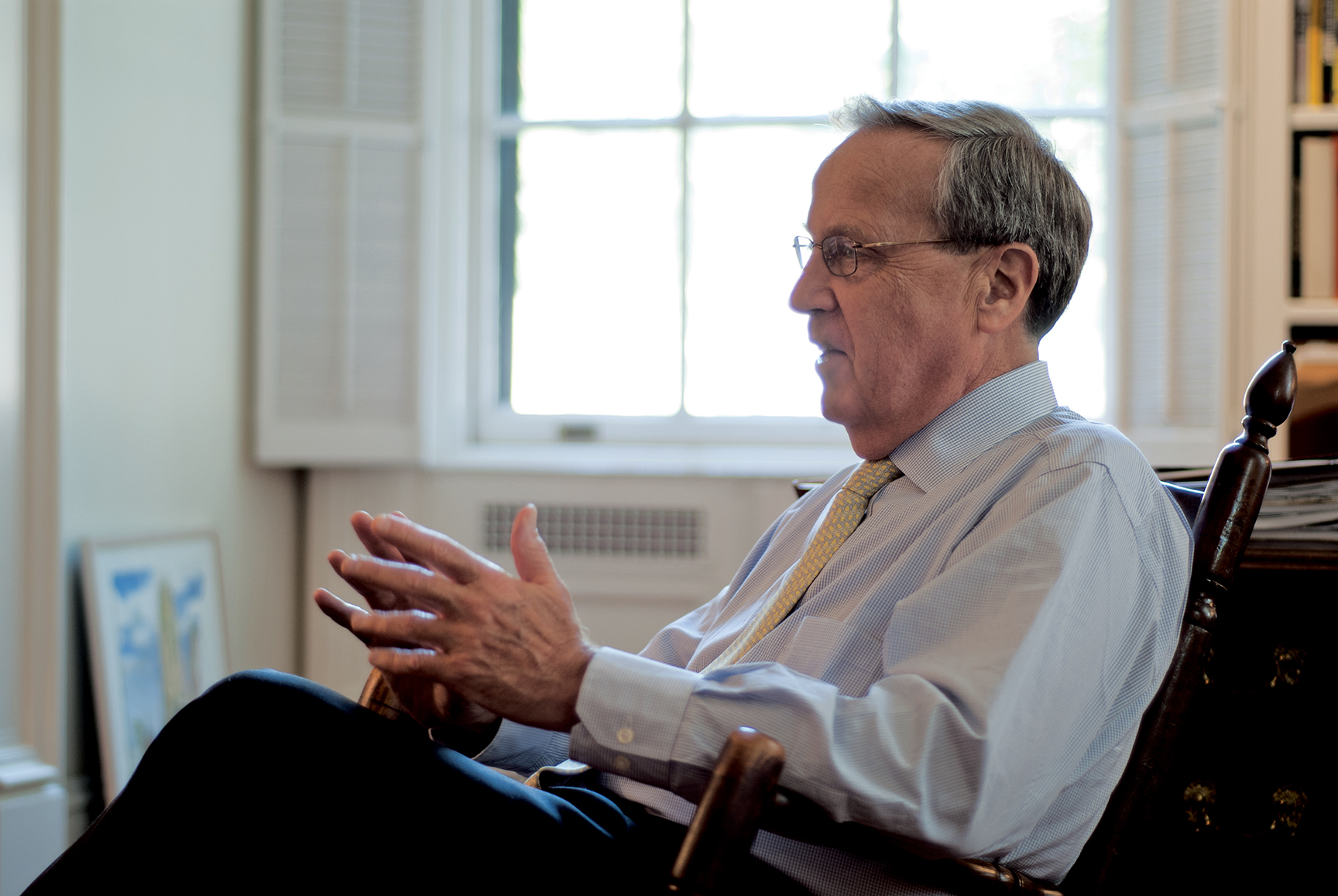
SINGAPORE — Eight years after a conversation in Davos sparked discussions between Yale and the National University of Singapore about whether Yale might help establish Singapore’s first liberal arts college, preparations are underway at Yale-NUS College for the school’s first commencement ceremony.
Members of the college’s first graduating class will receive their degrees on May 29 at the National University of Singapore’s University Cultural Centre, one day after the students and their families are honored at an event similar to Yale’s Class Day ceremonies. Presided over by the president of Singapore and NUS Chancellor Tony Tan Keng Yam, the ceremony will include speeches from one student and one faculty speaker chosen by the students, as well as the Singaporean Minister of Higher Education Ong Ye Kung and former Yale president Richard Levin, the official commencement speaker.
“The graduation ceremony marks a significant milestone in our college’s history,” Yale-NUS Director of Institutional Affairs Sohini Brandon-King said in an email. “As this is the college’s inaugural graduation ceremony, there is a great deal of anticipation from our college community and our key stakeholders, including parents, partners and donors.”
The commencement ceremony will also mark the first time that “Halcyon the Kingfisher,” the school’s mascot, will make its appearance in the artwork at an official college event.
Yale-NUS students and administrators began planning for the ceremony as early as March 2016, when Dean of Students Christopher Bridges told the college’s student government that the administration was forming a student graduation task force. The administration has also formed a separate graduation committee tasked with overseeing the event.
Brandon-King, who serves on the college’s graduation committee, said the committee consists of representatives from various administrative wings, including the department of institutional affairs, the Dean of Students Office and the offices of academic affairs and public affairs.
She added that a separate student graduation committee contributed valuable input on the design of the graduation gown and the diploma and offered suggestions during the process of choosing the graduation speaker.
To select the graduation speaker, Brandon-King’s committee first reached out to the speakers nominated by the students, before Yale-NUS President Pericles Lewis made the final decision to ask Levin. According to The Octant, Yale-NUS’ student newspaper, members of the student graduation committee claimed that Levin was not on the list of nominees they had submitted to the administration.
“The concept of Yale-NUS College was conceived during professor Richard Levin’s term as president of Yale, and he has been serving as a governing board member of Yale-NUS College since the launch of the college,” Brandon-King said. “In addition, professor Levin continues to contribute actively to higher education in his current role as CEO of Coursera. The college is of the view that professor Levin is not only an outstanding choice as the graduation speaker but also a very fitting one.”
The ceremony comes at a significant transitional moment for Yale-NUS College, as the school moves closer toward its intended size of 1,000 students and seeks to secure its institutional footing under a new leadership team. One month after the ceremony, history professor and current Executive Vice President for Academic Affairs Tan Tai Yong will take office as Yale-NUS’ second president. Lewis, a former Yale English and comparative literature professor, will be returning to New Haven this fall as Yale’s vice president for global strategy and deputy provost for international affairs.
Lewis’ arrival in New Haven follows that of Charles Bailyn ’81, who served as the inaugural dean of faculty at Yale-NUS from 2011 to 2016 before returning to Yale as the inaugural head of Benjamin Franklin College. Lewis’ departure marks the complete replacement of Yale-NUS’ inaugural senior leadership team.
“At Yale-NUS, our curriculum and co-curricular programs aim to cultivate creativity, curiosity and critical thinking, while nurturing in our students an ethic of service as well as adaptability and resilience,” Tan said at a March press conference announcing his appointment. “As we prepare the class of 2017 for graduation in May this year, I believe we shall see in our graduating students the realization of those outcomes.”







